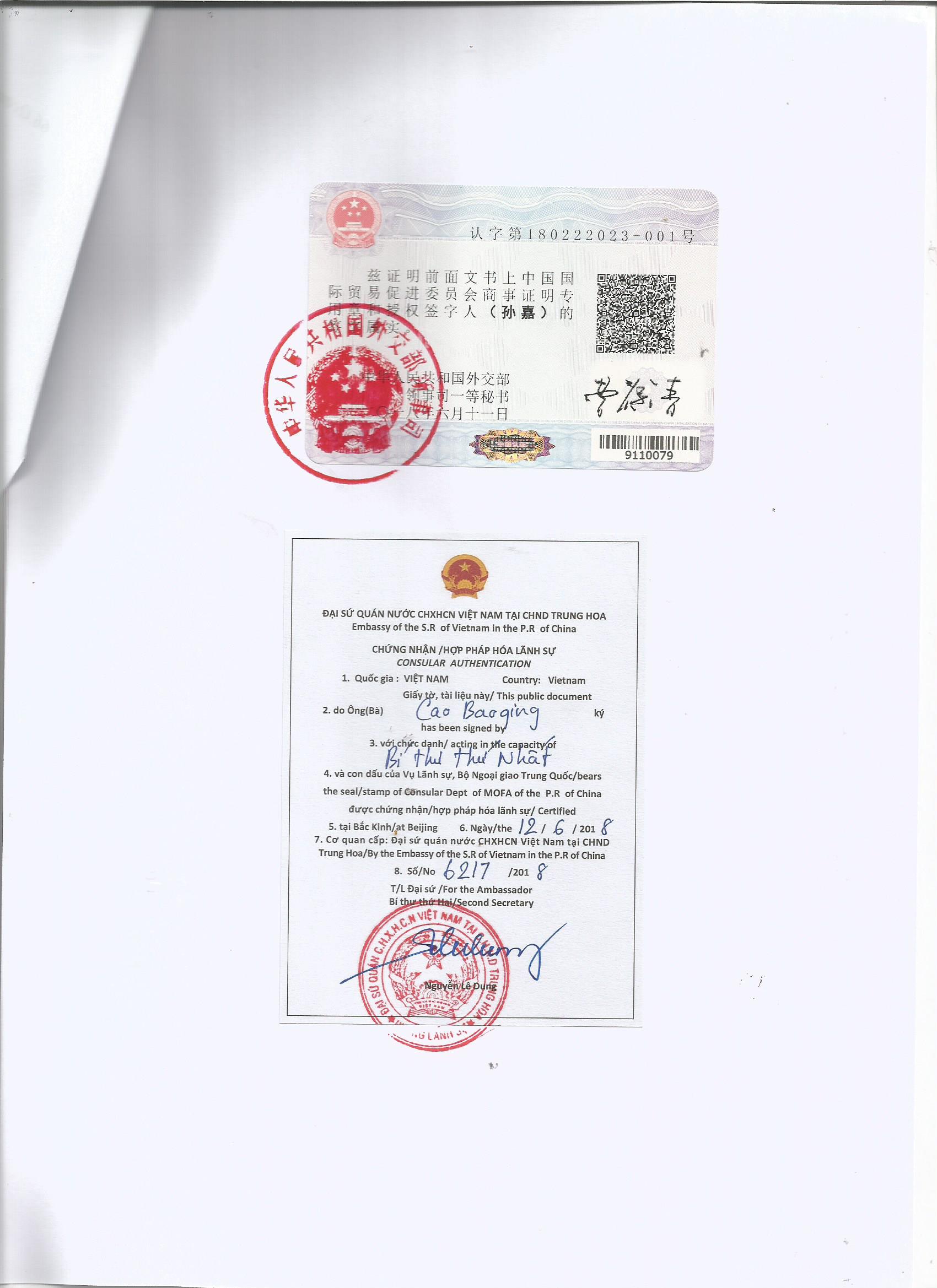为什么要越南自由销售FSC领事认证办理领事签章?
在国际贸易实践中,许多country和地区出于保护本国市场的需要,纷纷制定了严格的贸易保护政策,要求我国出口企业所提供的涉外商业单据和文件,需经该国驻华领事签章,才能在进口国办-理通关结汇手续。领事签章不仅仅是一种惯例,而且在不少country是以法律的形式加以规定的。经过签章的单据和文件具有域外使用的法律效力,为使用国有关当局所承认。
为什么要办-理领事签章? 领事签章的目的是向使用文书的外国机构证实文书的真实性,避免因其怀疑文书上签字或印章是否属实而影响文书的使用。比如说,国内公证处出具出生公证/书,当事人如果不办领事签章直接拿到A国使用,A国主管当局无法核实这份文书的真伪,因此将拒绝接受,A国当局会要求当事人将文书经过A驻华使(领)馆确认。而A国驻华使(领)馆也没有中国内公证处签字或印章备案,难以核实文书本身的真伪,因此又会要求文书先经中国官/方机构签章,证明有关文书证单位的印章及官员签字属实,然后A国驻华使(领)馆再确认中国官/方机构的印章、签字属实。此后A国主管当局才会接受此文书。
Why do we need to do-the consul's signature? The purpose of the consular signature is to verify the authenticity of the document to the foreign institution that uses the document, so as to avoid affecting the use of the document because it suspects whether the signature or seal is true. For example, if the domestic notary office issues a birth notarization/book, if the party concerned does not apply for a consular signature and seal directly to country A, the competent authority of country A cannot verify the authenticity of this document, so it will refuse to accept it, and the authority of country A will require the party The documents will be confirmed by the Embassy (Consulate) of A in China. And the embassy (consulate) of country A in China does not have the signature or seal of the domestic notary office of China, and it is difficult to verify the authenticity of the document itself. Therefore, it will require the document to be signed by the Chinese official/party organization to certify the relevant document certificate unit The seal and official signature are true, and then the embassy (consulate) of country A in China reconfirms that the seal and signature of the Chinese official/party organization are true. Only then will the competent authority of country A accept this document.



